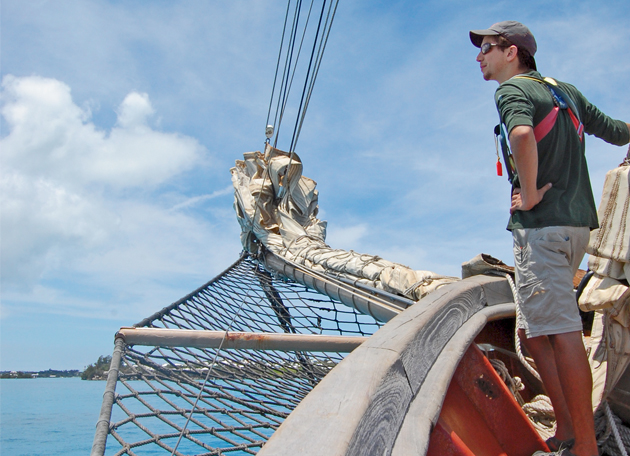
Jeremy Pivor has logged some 55,000 miles pursuing academic interests in the past three-plus years. From the Mojave Desert to the Big Island of Hawaii, from Madagascar to the Sargasso Sea, he has witnessed astounding natural beauty. The common denominator, he observed, is the interconnectedness and fragility of life.
Overfishing. Ocean acidification. Marine invasive species. Marine habitat destruction. Sea temperature rise. Sea-level rise. These conditions, and others, threaten the world’s oceans.
According to a 2011 issue of Scientific American, “The world’s oceans appear to be headed to a new mass extinction event.”
Having studied the world’s greatest waters, Pivor recognizes the urgent need for intervention on their behalf.
Love and hardship
Pivor grew up on the coast, in Boston, and it’s no surprise that he fell in love with the sea at an early age. During most summers, he sailed from New Jersey to Martha’s Vineyard with his grandparents, strengthening his bond with them and the water.
“I really felt since I was given so much by so many to get through that experience, that I now have a responsibility to give back.”
—Jeremy Pivor, Arts & Sciences Class of ’13
In seventh grade, Pivor endured a bad seizure. At the hospital, doctors discovered a brain tumor. The tumor appeared in the area controlling movement on the right side — a very dangerous spot to operate. So doctors decided to wait.
Soon thereafter, Pivor suffered a series of additional seizures. This time, they decided to act, and the 12-year-old headed for surgery. Though risky, doctors aggressively pursued the tumor, leaving Pivor paralyzed on his right side. He shocked doctors, however, when he twitched his right leg just four days post-op. (Doctors suggested the paralysis would last three months at a minimum.)
Throughout his three-month stay in the hospital, Pivor relied on a knot of doctors, nurses, family and friends. With their help, he learned to walk again, though to this day he has a slight limp. He also picked up another lasting lesson: how interdependent we are on each other.
Within him, a profound respect for life blossomed. “I really felt since I was given so much by so many to get through that experience, that I now have a responsibility to give back,” he says. “That’s what guides me.”
Road to the midwest
While finishing high school and working part time at the New England Aquarium, Pivor imagined attending a university on the coast. He changed his mind after reading about Washington University’s Pathfinder Program in Environmental Sustainability, led by Professor Ray Arvidson.
“Jeremy combines a thirst and drive to learn with a wonderful ability to work with people. That combination makes him a role model for the Pathfinder Program.”
—Ray Arvidson, PhD
Pivor found the program compelling because he wanted to study broad environmental issues in a small-group setting. “The Pathfinder Program offers a really close community of people who are passionate about environmental issues,” he says. “It’s been a perfect fit for me.”
The feeling is mutual. “Jeremy combines a thirst and drive to learn with a wonderful ability to work with people. That combination makes him a role model for the Pathfinder Program,” says Ray Arvidson, PhD, the James S. McDonnell Distinguished University Professor. “Jeremy is the type of student who makes working with the Pathfinders and watching them meet their career goals a highlight of my career.”
U.S.–China student alliance
The Pathfinder Program set Pivor on a course of amazing discovery. During his first semester, he met Jiakun “Summer” Zhao, an environmental earth science major. Together, the two followed the COP15 negotiations, part of the U.N. Climate Change Conference in Copenhagen in late fall 2009, which was infamous for its lack of cooperation among nations, especially between the United States and China. This lack of cooperation prompted Pivor and Zhao to co-found the Washington University Students for International Collaboration on the Environment (WUSICE).
“I was inspired to see how closely the Chinese and American student delegates worked together. This helped me believe in a bright future for international collaborations.”
—Summer Zhao, AB ’13
With assistance from fellow undergraduate Karen Mok, who was studying in China at the time, Pivor and Zhao reached out to like-minded students at Fudan University (Shanghai), which has been a partner with WUSTL through the Olin Business School’s Washington University–Fudan University Executive MBA program and through the McDonnell International Scholars Academy. Then, with support from the Chancellor’s Office, they began organizing the first U.S.–China undergraduate conference on climate change and sustainability for the following year.
In fall 2010, Pivor and Zhao welcomed 11 Chinese students from Fudan University for the first WUSICE conference on the Danforth Campus. Their meeting culminated with a mock COP16 organized by all the students, as well as the creation of a “memorandum of understanding,” which everyone signed.
“I was inspired to see how closely the Chinese and American student delegates worked together to produce the white paper. This helped me believe in a bright future for international collaborations,” says Zhao, who graduated in December 2012.
Campus leaders took note, too. “One interesting result [of the conference] was that a core group of students emerged — both graduate and undergraduate and from different academic backgrounds — who continued afterward to meet and discuss global solutions to climate change,” says Rob Wild, PhD, assistant vice chancellor and assistant to the chancellor. “Meeting these challenges will require people who are able to work across global boundaries. Jeremy understands this well.”
From deserts to green sand beaches
While organizing the conference, Pivor was also gearing up for his first Pathfinder trip, to the Mojave Desert in spring 2010.
To prepare, students take “Case Study: Southwestern United States,” a course focused on the biology, ecology and geography of the fragile desert, as well as how people use the area.
“Before our trip, I learned about these issues through the Discovery Channel or in books,” Pivor says. “We visited Kelso Dunes, and, by seeing these enormous dunes and other sites, I definitely gained a deeper respect and appreciation for the area.”
That summer, he spent his break at WUSTL’s Tyson Research Center, funded by an undergraduate research grant he had won. He worked alongside Bryan Allan, PhD, assistant professor at the University of Illinois, Champaign-Urbana, studying declining bat populations and mosquito proliferation — and subsequent disease risks to humans.
The following winter, on the second Pathfinder trip, Pivor and his classmates toured the Big Island, exploring issues in environmental sustainability and hazards specific to the Hawaiian island. Here, he solidified a desire for ocean study.
“We hiked to this great cove with a green sand beach, remnants of a volcano, and we saw sea turtles,” he says. “It was an incredible experience filled with natural wonders.”
WUSICE came to the fore again during the spring, when Pivor participated in the 2011 Clinton Global Initiative University (CGI U) in San Diego. Pivor’s “commitment” was to collaborate with youth from China and India on joint delegations to the climate change negotiations. (Washington University is hosting the sixth annual meeting of CGI U April 5–7, 2013. Look for more in the April and June issues.)
The summer after his sophomore year, Pivor again immersed himself in research. He was awarded a National Science Foundation Research Experiences for Undergraduates grant, through the University of North Carolina Institute of Marine Sciences, in Morehead City, N.C. There, he carried out an independent research project with Distinguished Professor Charles Peterson, PhD, studying oyster reefs in the ecosystem. He assessed how they provide an important water filtering function in the environment and measured the spatial scale of that service. This project was great preparation for what Pivor would partake in next.
Study abroad: an ocean view
Pivor opened his junior year once again working with the Chancellor’s Office. This time, with other leaders from WUSICE, he organized and led a delegation of 11 students to the U.N. Framework Convention on Climate Change, in Durban, South Africa. (The trip was supported by Arts & Sciences and the engineering school.) He also served as the Sierra Student Coalition’s international youth delegate, collaborating with students from the Maldives, Germany, China and other countries, drafting the official youth constituency’s policy stance on fresh- and saltwater issues. In Durban, Pivor continued focusing on building U.S.–China relations in a workshop he helped organize.
“The people inspired me. Not only are the adults making strides in protecting their resources, but the kids are as well.”
—Jeremy Pivor, Arts & Sciences Class of ’13
One week after the conference, and with funding from Washington University, he traveled to Madagascar for the cultural component of a study-abroad semester. For 2½ months, he lived and conducted research in the remote fishing community of Andavadoaka on a project to conserve its threatened marine and coastal environments.
In this region, the government established a system of local reserves on the reefs. Pivor surveyed fish and benthic (species on the sea floor) populations and then analyzed the differences in diversity between the coral reefs that were protected — no-take zones — and those that allowed fishing.
“I did a lot of diving, and the reefs were breathtaking,” Pivor says. “What’s been found — and what I saw — is that the biodiversity remains much higher in the no-take zones.”
Pivor also worked with the community, teaching kids English through teaching them about conservation. “The people inspired me,” he says. “Not only are the adults making strides in protecting their resources, but the kids are as well.”
From Madagascar, Pivor traveled to Woods Hole, Mass., for a Sea Education Association semester on marine biodiversity and conservation. Leaving Woods Hole, students flew to St. Croix, where they boarded a brigantine tall ship. Seventeen students and 13 crew members sailed from St. Croix to Bermuda and then up the coast back to Woods Hole. En route, the students trained in sailing the ship and studied the biodiversity of the Sargasso Sea. (For his senior thesis, Pivor is looking at the genetic structure of lobster larvae, to better inform management strategies of the Caribbean spiny lobster in the Atlantic’s central region.)
“The Sargasso Sea is this essential part of the Atlantic Ocean; it’s a large gyre,” he says. “We studied the biodiversity but also looked at high-sea governance and issues around conserving an area that is beyond any national jurisdiction.”
Pivotal scholarship support
For his deep commitment to the environment, Pivor was awarded a prestigious Udall Scholarship (one of 80 awarded nationally, and one of two from WUSTL selected in spring 2012). He also holds two honorary scholarships (J. Stephen Fossett Pathfinder and Florence Moog) through Arts & Sciences.
“A truly gifted leader is able to develop a good idea, and then pass it on for others to continue. Jeremy has been able to do that [with WUSICE]. It’s a skill he will take with him in his years beyond the Danforth Campus.”
—Rob Wild, PhD
“I’ve been offered so many incredible opportunities, through scholarships and support from professors, the administration and other students I’ve met,” Pivor says. “I wouldn’t have been able to do all the amazing things I’ve done if I hadn’t gone to Washington U.”
On the Danforth Campus for his senior year, Pivor is focusing on his thesis. In recognition of his achievements and promise, he was named a finalist for the Rhodes and Marshall competitive scholarships. And, at press time, he was awarded the prestigious Luce Scholarship. His long-term plans include graduate school with the goal of working in international ocean policy.
“I have rarely seen a student able to build movement among his peers the way Jeremy has,” Wild says. “A truly gifted leader is able to develop a good idea, and then pass it on for others to continue. Jeremy has been able to do that [with WUSICE]. It’s a skill he will take with him in his years beyond the Danforth Campus.”
Terri Nappier is editor of this magazine.
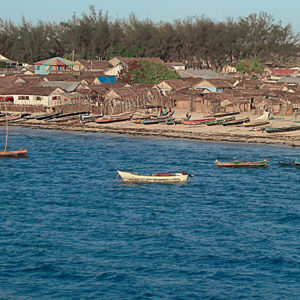
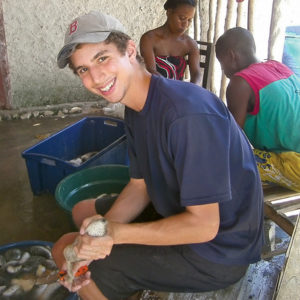
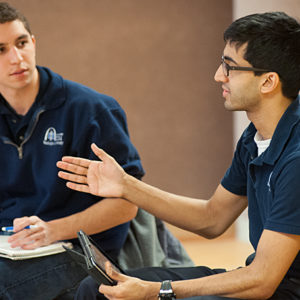
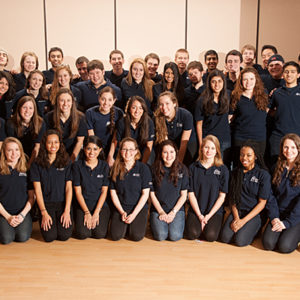
Comments and respectful dialogue are encouraged, but content will be moderated. Please, no personal attacks, obscenity or profanity, selling of commercial products, or endorsements of political candidates or positions. We reserve the right to remove any inappropriate comments. We also cannot address individual medical concerns or provide medical advice in this forum.